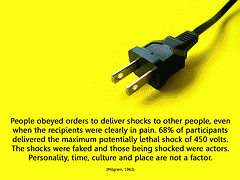Much of what we learn about sports is negative. We learn that our heros cheat with steroids. We learn that they cheat on their wives. We know many athletes abuse drugs. We read weekly about some athlete or former athlete who has run afoul of the law. We see famous people abuse fans.
We also see some of the worst sides of our own natures when spectators fight or get drunk and make spectacles of themselves. We learn about the overzealous parent who can't restrain herself from abusing coaches, referees, other parents, or even young competitors.
But sometimes our heros surprise us and we learn a positive life lesson from sports. Such was my experience the other day listening to ESPN's Mike and Mike radio show on the Internet.
One of the co-hosts of the show, Mike Golic was talking about an experience he had when he was a football player at Notre Dame. The guests on the show were two of Golic's brothers, Bob and Greg, both of whom had also played at Notre Dame. Mike and Greg had been teammates. The two brothers played defense and offense respectively and so would sometimes find themselves battling one another during practice.
The coach chased after Golic and berated him, but Golic held his ground and told the coach that while he would be glad to face his brother in a legitimate practice or scrimmage session, he would not participate in the type of spectacle the coach had demanded. Golic defied his coach.
On June 10, 1944, in the small village of Oradour-sur-Glane, France, four days after the Allied forces landed in Normandy, a unit of the SS rounded up and massacred 642 villagers. After shooting the victims (men, women, and children) in the legs, the Nazis burned the bodies of the victims as well as the buildings of the town, as a warning to the French Resistance, none of whom were residents of Oradour.
Of the Nazi soldiers who participated, many were from the French region of Alsace, as were several of the slaughtered children. There is no evidence that any of the soldiers disobeyed commands to execute the civilians. The killings at Oradour are widely considered here the worst German atrocity committed on French soil during WW II.
As a former history and psychology teacher, I am especially interested in the psychological topic of obedience to authority, particularly as it relates to historical events. In a series of some of psychology's most famous experiments beginning in 1961, Yale psychologist Stanley Milgram demonstrated that ordinary people, participating in a supposed "learning" exercise, would repeatedly deliver what they believed to be lethal shocks to strangers, if instructed to do so by persons acting in positions of authority.
Golic's act of defiance in a high stakes situation (he would later play in the National Football League for nine seasons, so football was obviously important to him), with teammates and a coach (authority) nearby, represents a positive aberration. Milgram's experiment teaches us that in situations like the one Golic faced, or indeed, in the village of Oradour, few, if any persons, will resist the demands of even unjust authority. Had there been a handful of Golics among the Oradour guards however, we can surmise that the tragic events of that afternoon might have been avoided.
The challenge for psychologists and historians is to try and understand how those individuals, like those who defied the Chinese Communists in Tiananmen Square twenty years ago, risking social approbation and even worse, could have made the decisions that they did, and how more of us could make those types of moral decisions.
   Â

|
Life Arts H4'ed 6/2/09 A Positive Sport's Message |
|
| Rate It | View Ratings |

OpEdNews depends upon can't survive without your help.
If you value this article and the work of OpEdNews, please either Donate or Purchase a premium membership.
If you've enjoyed this, sign up for our daily or weekly newsletter to get lots of great progressive content.
Most Popular Articles by this Author: (View All Most Popular Articles by this Author)
Why the Insanity of College Admissions Will Change
Psychology of Change
Why Our Children Need National Multiple Choice Tests
Crazy College Admissions and the Canadian Alternative
Don't Know Much About History
High School Diploma Should Mean Something
To View Comments or Join the Conversation:



